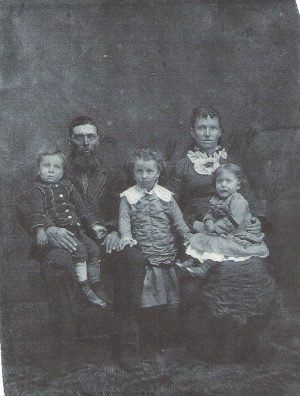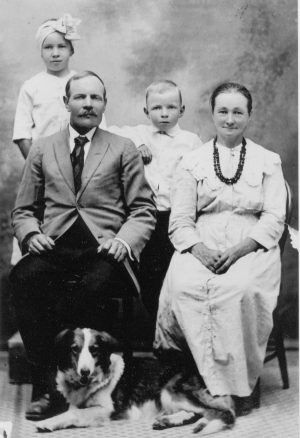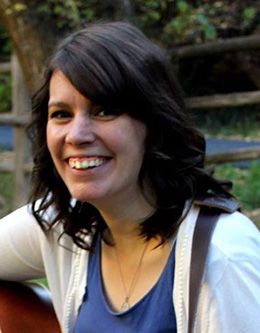Re-remembering the Forgotten
May 26, 2016 • Blog Post
I was raised on ancestral stories. I recall many road trips winding by historic sites, museums, and cemeteries—my four siblings, my parents, and I crammed in our high-top purple van, my dad at the wheel quizzing us on who follows whom on our pedigree charts. The stories sank into my core, becoming a part of me and flowing through my veins, mimicking the literal ancestral blood that resided there too. Through these stories, I can clearly imagine my forefathers and foremothers in my mind’s eye:
Asa Bliss fighting for American independence in the backwoods of Kentucky
Martha Arnold with her tired hands after burying her husband and eight of her children in unsettled 1880s Arizona
Elizabeth Tilley feeling the sea wind on her 13-year-old face aboard the Mayflower
Lemuel Herrick holding onto faith as mobs destroy his home in Jackson County, Missouri
The stories I’ve shared are not unique to my ancestry. We all have soldiers who fought in the great wars of history. We all have emigrants who left their homelands for diverse reasons. We all have foreparents who lived a quiet life that impressed goodness on their children’s lives. These stories are there, hidden in history.

William Taylor (second from left) and his family came to Oregon in the middle of the Gold Rush after living in Missouri, Texas, and Nebraska.
I haven’t always known my own ancestral stories. They have been rediscovered—re-remembered—by digging through archives or typing ancestors’ names into Google. But not long ago, someone knew them. Someone knew that Great-Grandpa Taylor settled the wilds of Oregon in the heat of the Gold Rush. And someone knew that Grandma Petersen narrowly escaped death aboard the Titanic thanks to a severely sick family member who postponed their emigration.
Our ancestors’ stories have a way of being forgotten. And though hundreds of people may have once known them, if we—you and I—don’t know these stories, they cease to matter and cease to bless us. The individual discovery of these stories will instill the strength of personal heritage into our lives. As Church historian Steven E. Snow said in his April 2015 devotional:
We gain strength from the stories of those who have gone before. We all must figuratively pull our own handcart through life. We learn from past generations how to be strong and what brings happiness and joy in our lives. We also learn that God’s children are not and never have been perfect and that He can accomplish His work through people just like you and me, even if we have obvious or hidden shortcomings.

The Petersens came to America in 1912, narrowly missing a voyage on the Titanic. My great-grandmother Jessie (in the head scarf) was six at the time of their emigration from Denmark.
Maybe the impact of ancestral stories is why Helaman saw value in naming his sons after righteous ancestors:
I have given unto you the names of our first parents who came out of the land of Jerusalem; and this I have done that when you remember your names ye may remember them; and when ye remember them ye may remember their works; and when ye remember their works ye may know how that it is said, and also written, that they were good. (Helaman 5:6)
This Memorial Day weekend, may we take the opportunity to follow Helaman’s advice—to rediscover our ancestors and their stories and remember that “they were good.”

Amanda Kae Fronk is the communications manager for BYU Speeches. She is an avid collector of hobbies with book buying, nature watching, and food sampling being among the most enduring. She aspires to one day be called a master wordsmith, a woman of grace, and an owner of a devoted heart.



